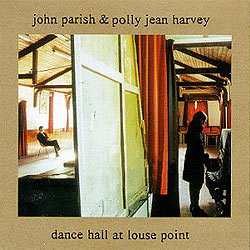My Short List Of Heroes: Q & A With John Parish
Published on November 29th, 2008 in: Current Faves, Issues, Music, Q&A |Popshifter: While we’re on the topic of context, you wear a lot of hats: producer, bandleader, film score composer, sometimes sideman, family man. . . how do you find one role informs another, or do you ever find that shifting gears from one to the other is difficult? Is it hard to, for example, hand a record off to Flood to mix, given that you spend so much time producing and mixing records yourself? Or does that make it easier for you, to focus on another role for a while?

John Parish: Yes, I do wear a lot of different hats. I like the way they influence each other, but sometimes, due to poor scheduling on my part, I have to change too quickly and that can cause a couple of bumpy days. Handing a record to somebody—anybody else—is something I’ve gradually become more comfortable with. I hated it, and always the result, at first. You’d spend time in the studio getting things just as you want them, then somebody else might do a mix that totally lost what you had set up. Now I’m more prepared to listen to what they brought to the piece, rather than what they’d taken from my ‘vision.’ Of course, it depends who’s doing the mixing! I’m happy to let Flood mix because I feel he has a level of ‘sonic expertise’ that I don’t have, and that because we’ve worked together on several records, he understands what I’m looking for. I think he’s done a fantastic job on the new Parish/Harvey album.
Popshifter: In the course of wearing so many hats, you’ve worked with a radically divergent set of artists. How do you manage working with what I would assume is an equally divergent set of personalities and contexts? How was, say, working on 16 Horsepower’s Low Estate different from working with Mark Oliver Everett on eels’ Souljacker or working with Howe Gelb (Giant Sand) over the years? Have you been able to apply anything you’ve learned working with other artists to your own solo work?
John Parish: Yes, of course, every artist I’ve worked with has had their own idiosyncrasies; each situation is different. I try and approach every session with an open mind. I don’t go in with a fixed idea of what I want to happen. I trust the artists I work with—and hope they trust me—to be able to respond to situations as they arise. As for character: as a producer, you try to figure out pretty quickly how to handle different, and often apparently difficult personalities. Over the years I’ve worked with people who’ve had a reputation for being ‘difficult,’ but I’ve often found that what that actually means is they just have a very strong idea of what they want to do. Sometimes they don’t articulate it that well. You have to figure it out. It’s not usually that hard. Probably being a musician and making my own records helps me out with that.
I’ve learned from every session I’ve ever done. And working with other people definitely affects my own work. Not specifics as such, but things filter through subconsciously. Sometimes I can look back at a piece of my own work, and with a bit of distance see what particular influences were at play. Working with Howe Gelb was an obvious influence. The waywardness, and lack of fear about trying anything, being prepared to fail. . . these were all traits I’d tended to avoid in the studio before recording Giant Sand for the first time. Howe gave me the confidence to embrace a little chaos in the studio.
Thanks again to Mr. Parish for taking time to do this interview.
Additional Resources:
For more information about John’s work, check out his website and MySpace page. Check the Bio section; chances are pretty good that you just may own a record or two that John’s been a part of!
Pages: 1 2
Time limit is exhausted. Please reload the CAPTCHA.